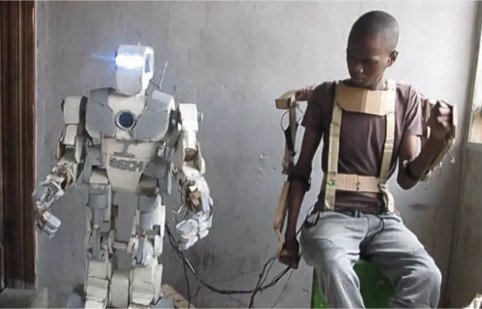BY: TOBILOBA FOLUWAKEMI OLULEYE
Where there is widespread occurrence of infectious disease in a community otherwise known as ‘epidemic’, or when the infectious disease spreads across countries or continents described as ‘pandemic’, concern is raised on how to contain such. But more also is the question of who contracted the disease or their identity.
Recently, the Corona Virus (“COVID-19”) pandemic has been ravaging the world including Nigeria, and the Nigerian Centre for Disease Control (“NCDC”) keeps announcing the new cases every day, including the discharged and the deaths. Nigerians are wondering why the NCDC and the government are not disclosing the identities of the COVID-19 patients as the latest cases are being announced. Some are therefore beginning to doubt the veracity of these announcements and cases. In fact, when the index case (the Italian man) was discovered in Nigeria then, and the information was announced, a lot of people requested for his identity and doubted the government’s clams due to the failure to disclose his identity. There was also a lot of public outcry when the status of the late Chief of Staff to the President, Abba Kyari was not declared on time. Now, we are going to be discussing the reason the details of the COVID-19 patients are not being disclosed.

Tobiloba Foluwakemi Oluleye
The identities of these patients are protected by the Nigerian law and the ethics of the medical profession. Section 37 of the 1999 Constitution of the Federal Republic of Nigeria protects their privacy, just like every other Nigerian. Furthermore, the NCDC, government and health officials are not disclosing the information of these patients due to what is called the patient-doctor confidentiality. When patients can’t trust their doctors to keep the information divulged to them, they would not reveal the correct information which would hinder the doctors from properly administering the required treatment. Patients will only reveal information when they are certain that their information would be kept private. It is therefore important that patients trust their doctors enough to reveal the correct information, so doctors can diagnose properly and treat correctly. This is basically patient-doctor confidentiality. Information disclosed to doctors by their patients in the course of patient-doctor relationship, or discovered by the doctors through a test, treatment, medical documentation, etc. must not be disclosed to third parties. Disclosing this information to third parties is a breach of doctor-patient confidentiality. This is provided for in the Rule 11.2 the Code of Medical Ethics 2008 (“the code”) which states that:
“A physician shall preserve absolute confidentiality on all he knows about his patient even after the patient has died.”
Even in cases such as criminal abortion, veneral disease, attempted suicide, concealed birth and drug dependence, the doctor is expected to protect the confidentiality of the information given.
However, this is not to say that the confidentiality of the patients’ information is absolute. Section 44 of the code provides that information about these patients could be released following an informed consent from the patients, preferably in writing. Also, where disclosure of the information is needed to protect the patient or the community from danger, then a discretionary breach may be necessary. For instance, where a COVID-19 patient escapes after testing positive or he manages to escape the isolation centre, it may be necessary to disclose the identity and relevant information of the patient to the public so that the public can be aware of this fact and watch out for this patient and possibly get him arrested if seen. This is to protect not only the lives of the community but also, to protect the life of the patient. An example is what happened in Edo state where a lady escaped after testing positive to COVID-19, her identity and details had to be disclosed on social media to aid the search for her. This is also the reason that the test results of popular figures such as the late Chief of Staff to the President, Abba Kyari and some governors were disclosed to the public being that they were public figures and many people had come in contact with them by virtue of their offices. There was therefore the need to inform the public so that those who came into contact with them could self-isolate.
Furthermore, section 44 of the code provides that where statutory notification of disease is involved, the consent of the patient is not required. An example of this is the automatic daily disclosure of the latest cases of COVID-19 patients to Nigerians by the NCDC. In this instance, the consent of the patients is not needed. It should be noted however that even still, the NCDC did not disclose the identity of the patients.
Section 44 of the code further provides other instances where the patient-doctor confidentiality can be breached and the principles governing such. Some of them include:
- cryptic utilization of anonymised clinical material for teaching or publication in professional journals;
- the need to maintain a balance between maintenance of confidentiality for an under-aged patient and simultaneously making available necessary information to the parent or guardian;
- when the doctor is directed by a court of law to disclose the information, which must thereafter be done strictly under protest;
- presentation of a patient at a scientific meeting only following informed consent of the patient and acceptance by the audience to maintain confidentiality.
The World Health Organization (“WHO”) also provides further guidelines for the supervision of coronavirus patients specifically, and these guidelines also guarantee confidentiality of the COVID-19 patients.
ALSO READ: EFFECTS OF COVID-19 ON ECONOMIC PRODUCTION AND IMPORTATION
Those who come out voluntarily to disclose their positive status must be commended as these acts have helped to make people more aware of the disease and the fact that it is around us and it can affect anybody. However, it should be noted that not everyone is that brave, especially considering what we hear about those with positive cases being stigmatized. Furthermore, a breach of this confidentiality by the medical personnel, except in the circumstances allowed by the law would attract consequences. So, whenever you wonder and ask why the Nigerian government is not disclosing the identity of COVID-19 patients and doubt the efforts of the government as a result, please think again. Please let us all join hands to fight the virus.
TOBILOBA FOLUWAKEMI OLULEYE is a Senior Executive Writer with YoungNigerian.com. She is an intelligent and versed legal Practitioner, a writer with an astute passion for enlightenment, and also an active mentor volunteer. She writes on law, inspirational, lifestyle, career and health related issues. You can reach her on tobiloba@youngnigerian.com or on LinkedIn .




